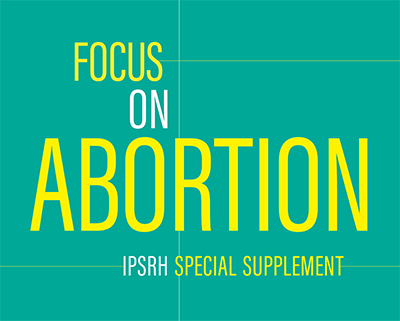IPSRH: Focus on Abortion is a special supplement to the final volume of International Perspectives on Sexual and Reproductive Health. It provides an in-depth examination of many facets of abortion in low- and middle-income countries. Abortion in these countries tends to be legally restricted and highly stigmatized, and people who wish to terminate a pregnancy often have little recourse but to seek an unsafe abortion, which can result in severe injuries and even death.
The articles and other content included in this supplement encompass diverse aspects of the abortion experience and touch on innovation in research methodologies, changes in laws and policies, and implementation of public health programs. Taken together, they point to progress that has been made in the study of, access to and provision of abortion worldwide, while highlighting remaining gaps in abortion research and care in low- and middle-income countries.




